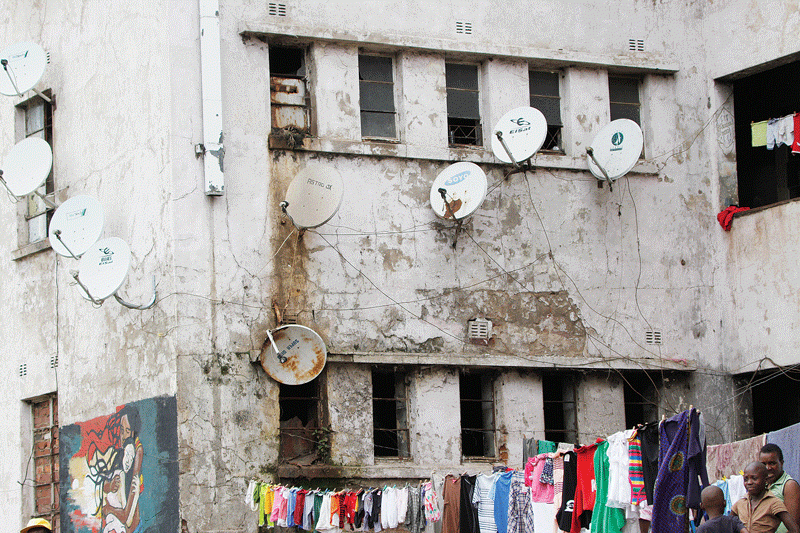
A mentor recently shared about the opportunity that changed their career, giving them access to work that allowed them not only to prove their capability but also to learn and innovate.
I asked if my generation had access to similar opportunities right after university. He paused, then said, “We need more discussions around this. While there are more innovations and paths to take, the opportunities are quite thin.”
I resonate deeply with this. His industry is engineering, but my career has led me to the intersection between creativity and commerce, yet the point still stands.
Opportunities are not just a privilege; they are the foundation for sustainable careers, especially entry-level ones. Without them, how do you build a portfolio or a CV? Like many, I started freelancing. But the reality is you often work twice as hard for your experience and accolades to translate into traditional systems. My own journey, and even my university choice to study business rather than solely my craft, taught me the critical importance of these early stepping stones.
Creatives will almost always choose to focus on developing their craft investing time and emotion into their talent. But at some point, talent alone is not enough. To thrive within the creative industries, especially now, creatives need business knowledge, access, and structure.
The creative industries are sectors built on individual creativity, skill, and talent and they generate wealth and employment through intellectual property. They include advertising, architecture, arts, design, fashion, film, music, publishing, and video games, among many others. Together, these industries make up what is known as the creative economy which is a dynamic system of creation, production, and distribution where creativity itself is the primary input.
Many people working within the African creative economy are gig workers, moving from one short-term contract or project to the next.
This means their career trajectories look different from traditional ones.
- Chamisa under fire over US$120K donation
- Mavhunga puts DeMbare into Chibuku quarterfinals
- Pension funds bet on Cabora Bassa oilfields
- Councils defy govt fire tender directive
Keep Reading
There aren’t linear promotions or fixed ladders to climb. Instead, progress is measured through the quality of gigs they secure, the growth of their reputation, and the strength of their portfolio as each project becomes both proof of skill and a pathway to the next opportunity.
When creatives can earn fairly from their work, access markets, and make long-term decisions about their careers, they participate more actively in their local economies.
They hire assistants, rent studio spaces, pay taxes, buy equipment, and collaborate with others all of which stimulate economic activity. Creative empowerment is therefore a form of economic empowerment. It moves creatives from being participants in culture to being producers within the economy shifting creativity from passion to profession.
Through the organisation I founded, Unpublished Africa, we’ve been working to give creatives access, networks, and business acumen helping them move from being just creatives to becoming creative entrepreneurs. Earlier this year, we invited women photographers to exhibit their work in “I’d Be Empowered If…”, asking each contributor to complete the sentence “I’d be empowered if…” when submitting their entries. Alongside the exhibition, we published a white paper exploring what true empowerment looks like for African creatives.
What we found was clear: developing skills, networks, and visibility isn’t just about growth. It’s about transformation. Empowerment in Africa’s creative economy cannot exist without access to finance, opportunity, and fair systems that recognise creative work as economic work. The “I’d Be Empowered If…” paper highlighted how structural barriers continue to hold back women photographers across the continent. From limited visibility to lack of equipment, their challenges have little to do with talent and everything to do with opportunity. Yet the findings were powerful: Africa is full of creative potential, but too many creatives still struggle to make a living because the systems around them don’t support growth.
When creatives have access to tools, spaces, and networks, they don’t just grow individually. One paid project can create a ripple effect; a photographer that lands a gig might hire an assistant, collaborate with stylists, rent a studio, and print locally. That’s money circulating within the local economy. This shows that true empowerment isn’t only about individual success but building systems that make success repeatable.
There’s been a growing conversation about what it really means to fund creative work.
More conferences are beginning to recognise this gap, and one I attended earlier this year, the Finance in Common Summit (FICS), featured a dedicated Sports and Creative and Cultural Industries (CCI) track for the very first time.
The panels brought together voices from development banks, the CCI, and the sports sectors, all converging on one truth: creatives remain critically underfunded.
The United Nations Development Programme (UNDP) estimates that Africa’s creative economy contributes roughly US$4.2 billion annually to GDP, yet receives less than 1% of global creative-economy investment.
We need funding frameworks built specifically for the creative economy not borrowed from industries like tech or startups, whose growth and return cycles operate differently.
This is as creative work doesn’t scale or yield returns in the same way.
Traditional funding models that rely on fixed assets, quarterly projections, or rapid growth metrics differ from the creative process, which often demands time, experimentation, and intangible value creation before financial return.
Creative empowerment is at its core about fairness and opportunity building an environment where creatives can turn talent into income, and income into impact.
With one of the world’s youngest populations, Africa’s creative economy is not just a cultural opportunity, it's an economic imperative.
According to the African Development Bank (AfDB), Africa’s youth population is expected to more than double to over 830 million by 2050.
Each year, around 10 to 12 million young Africans enter the job market, yet only about three million formal jobs are created annually. This gap makes alternative employment models, including creative entrepreneurship, crucial.
Globally, the creative industries employ nearly 50 million people, representing 6.2% of total employment and according to UNCTAD, creative-services exports reached US$1.4 trillion in 2022, a 29% increase since 2017.
Africa’s low share of this global creative trade reflects not a lack of talent, but a lack of industry-scale systems, investment, infrastructure, and supportive policy.
If the right structures are built, cultural capital could be leveraged not just for expression, but economic transformation.
Through the music we listen to, books we read, films we watch, or even through billboards used to advertise products, we are all engaging the creative economy.
The creatives producing these mediums we consume need support to continue their work.
Strong creative sectors generate more than income; they enrich societies.
They create opportunities for leisure, expression, and cultural participation which make our communities more vibrant and connected.
We also often talk about wanting to wear more local brands or watch stories we can relate to but we need to start asking how can this truly happen if the people meant to produce these works cannot sustain their craft.
Creative empowerment is about agency and giving creatives the tools and structures to build viable careers and contribute meaningfully to their economies.
Empowering creativity drives both economic and social progress. It builds industries.
When did you last enjoy a piece of creative work?
- Anesu-Tendesai Chikumba is a brand strategist passionate about empowering African entrepreneurs and creatives. As the founder of Unpublished Africa, she focuses on helping African creatives while challeng narratives about the continent.
- These articles are coordinated by Lovemore Kadenge, an independent consultant, managing consultant of Zawale Consultants (Private) Limited, past president of the Zimbabwe Economics Society and past president of the Chartered Governance & Accountancy Institute in Zimbabwe. Email – [email protected] or Mobile No. +263 772 382 852











